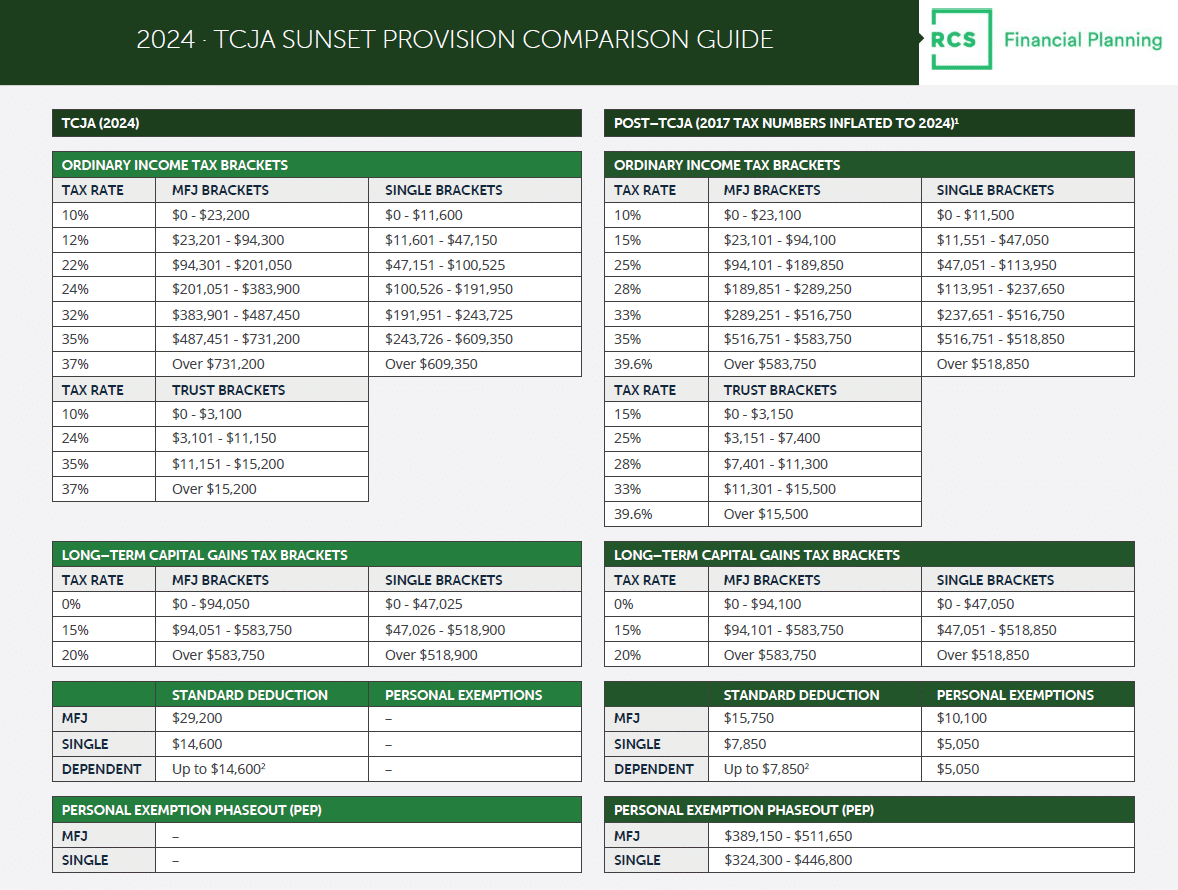IRMAA Brackets 2024: What You Need to Know
Medicare is a crucial part of healthcare for seniors and those with disabilities, but it’s important to know that Medicare premiums aren’t set in stone. If you’ve heard the term IRMAA (Income-Related Monthly Adjustment Amount), you may wonder what it means and how it impacts your Medicare premiums.
This blog post will help you better understand the Medicare 2024IRMAA brackets, its impact on Medicare premiums, and the role of MAGI (Modified Adjusted Gross Income) in determining those amounts. We’ll also take a closer look at the updated 2024 IRMAA brackets. Lastly, we’ll discuss how to navigate the IRMAA appeal process so that you can ensure you’re paying only what you need for your Medicare coverage.
Understanding IRMAA
You’re not alone if you’re wondering what the IRMAA monthly surcharge is and its impact on your Medicare coverage.
Many Medicare beneficiaries are surprised when they receive an updated Social Security Administration benefits statement and notice extra monthly amounts on their Medicare Part B and Part D premiums (IRMAA does not apply to Medicare supplement plans). In fact, 7% of beneficiaries end up with these additional IRMAA amounts on top of their standard premium.
What Is IRMAA?
So, what is IRMAA? It is an additional amount that people with higher incomes may pay for their Part B (medical insurance) and Part D (prescription drug coverage). The Social Security Administration (SSA) sets the income brackets to determine whether you are subject to the surcharge. You may have to pay the surcharge if your income is above a certain level. If you have to pay the surcharge, you’ll get a 2024 IRMAA determination notice from Medicare about four months before your coverage starts.
For people who earn over $103,000 and couples who make over $206,000, an extra fee, known as an income-related monthly adjustment amount (IRMAA), is charged on their Part B and Part D premiums. The fee is calculated on a sliding scale and applies to both Original Medicare and Medicare Advantage plans.
How IRMAA is Calculated
So, how is IRMAA calculated? It’s based on your Modified Adjusted Gross Income (MAGI) from your tax return. Social Security looks at your MAGI two years before the year you’re paying premiums.
For example, your 2024 IRMAA surcharge will be based on your income tax returns from 2022. It is important to remember this when planning your retirement income and taxes, as higher earnings can result in higher Medicare premiums.
The Role of Modified Adjusted Gross Income (MAGI)
And what exactly is Modified Adjusted Gross Income (MAGI)? MAGI is calculated by taking your Adjusted Gross Income (AGI) and adding back tax-exempt interest. So, MAGI is your total income before any deductions (except for “above the line” deductions).
As IRMAA is calculated using MAGI, proactive financial and tax planning is critical to avoiding and potentially reducing future surcharges on monthly premiums.
IRMAA Brackets 2024 – Medicare Part B & D
The Centers for Medicare & Medicaid Services (CMS) released the premiums, deductibles, and coinsurance rates for the Part A and B programs and the Part D income-related monthly adjustment amounts (IRMAA) for 2024 premiums. The 2024 IRMAA MAGI income limits are straightforward: $103,000 for individuals and $206,000 for joint filers.
Overview of the 2024 IRMAA Brackets
| MAGI (Single) | MAGI (Married Filing Jointly) | Part B Premium (2024) | Part D Premium (2024) |
| Up to $103,000 | Up to $206,000 | $174.70 | Plan premium |
| $103,001-$129,000 | $206,001-$258,000 | $244.60 | Plan premium + $12.90 |
| $129,001-$161,000 | $258,001-$322,000 | $349.40 | Plan premium + $33.30 |
| $161,001-$193,000 | $322,001-$386,000 | $454.20 | Plan premium + $53.80 |
| $193,001-$499,999 | $386,001-$749,999 | $559.00 | Plan premium + $74.20 |
| Above $500,000 | Above $750,000 | $594.00 | Plan premium + $81.00 |
As you can see in the table above, the 2024 IRMAA surcharge kicks in for singles with a Modified Adjusted Gross Income (MAGI) of more than $103,000 and couples with an income of more than $206,000. The surcharge continues to increase at higher MAGI levels.
It’s important to note that IRMAA is also known as a “cliff tax.” With a cliff tax, you must pay the added surcharge premiums if your MAGI is just $1 over the thresholds.
For example, the first MAGI threshold for a single tax filer in 2024 is $103,000. Suppose a single tax filer’s 2022 MAGI was just $1 over the threshold ($103,001). In that case, Medicare adds the full additional $69.90 a month to the $174.70 standard Part B premium and $12.90 a month to your Medicare Part D plan premium.
Predictions for 2025 IRMAA Brackets
While exact figures for 2025 are not yet available, the income thresholds and premium amounts are expected to increase slightly due to inflation rate adjustments and changes in Medicare costs.
Can I appeal the determination?
Can you appeal the 2024 IRMAA Surcharge? Yes! You may be able to eliminate or reduce the IRMAA surcharge through an appeal process if you have had one of eight “life-changing events” that have lowered your income.
In what situations can I appeal?
A “qualifying event” is a change in circumstances that may affect the beneficiary’s income or tax filing status and may qualify the beneficiary for a reduction or elimination of the IRMAA surcharge. Some examples of qualifying events include:
- Marriage, divorce, or death of a spouse
- Loss of income-producing property
- Retirement
- Change in employment status
- Loss of pension income
- Change in tax filing status
It’s important to note that the list is not exhaustive, and a beneficiary may appeal an IRMAA surcharge based on other changes in circumstances that may affect their income.
Steps for Filing an IRMAA Appeal
To appeal the 2024 IRMAA surcharge, you must complete the Medicare IRMAA Life Changing Event Form. The Medicare irmaa life-changing event form (FORM SSA-44) includes complete instructions on how to file an appeal, the documentation needed, and where to send your appeal form.
In addition, you may contact the Social Security Administration at 1-800-772-1213 (TTY: 1-800-325-0778). You must provide documentation to support your appeals, such as tax returns, wage and earnings statements, or other financial documents.
Strategies to Avoid Medicare IRMAA
Fortunately, through proactive tax planning, it’s possible to predict whether you will likely be caught in the 2024 IRMAA trap. You may even be able to take action to reduce future surcharges!
Your current Financial Advisor should proactively work with your tax information to project your short and long-term taxes. And together, you should develop strategies to reduce your future taxes and possible surcharges. If your Financial Advisor cannot do this, please schedule a 15-minute introductory call with us!
When it comes to calculating IRMAA, it’s important to note that Modified Adjusted Gross Income (MAGI) is used rather than taxable income. As a result, it may be necessary to reduce or shift income in order to avoid higher premiums.
If you own mutual funds that distribute high dividends or year-end capital gains, consider switching to tax-efficient funds or Exchange Traded Funds to lower your MAGI. This can help you save money on Medicare premiums and reduce the financial burden of healthcare costs. Additionally, consulting with a financial advisor can provide valuable insights into other strategies for reducing MAGI and managing your finances effectively.
For those who are 70.5 and older or subject to Required Minimum Distributions (RMD), making a Qualified Charitable Distribution (QCD) can be an effective way to donate to charity while also reducing taxable income. A QCD is a direct transfer of funds from an IRA custodian to a qualified charitable organization. This transfer counts towards the RMD requirement and is excluded from taxable income, thus reducing the overall tax burden. Not all charities are eligible for QCDs, so it’s best to consult with a financial advisor or tax professional before making any donations.
Optimize Your Savings: Strategic Tax Planning and Deductions
Seize the chance to keep more of your earnings! At RCS Financial Planning, we focus on crafting effective tax strategies and accurate projections for our valued retired clients.
These strategies play a crucial role in devising a personalized plan to reduce your tax burdens and manage Medicare premium adjustments. Connect with us today to schedule a friendly, introductory conversation. Let’s explore together how our insights can empower you to optimize your finances during retirement.

